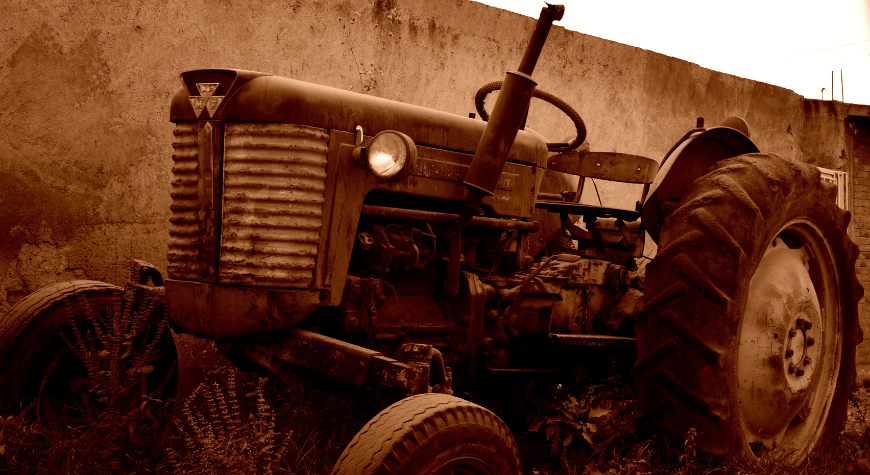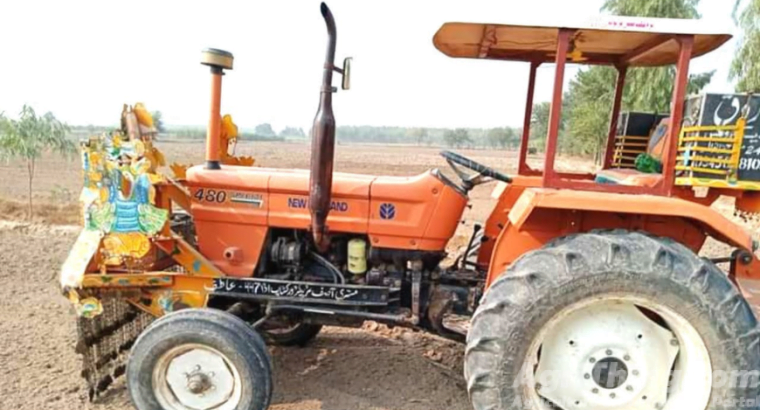The Environmental Impact of the FIAT 480 Tractor
Introduction
The FIAT 480 tractor is a popular agricultural machine used by farmers worldwide. While the tractor provides essential services for farmers, its environmental impact has become a growing concern. This article will examine the environmental impact of the FIAT 480 tractor and explore sustainable alternatives.
The FIAT 480 Tractor and Its Components
The FIAT 480 tractor is a versatile machine with many components, including the engine, transmission, and wheels. The materials used in the production of the tractor include steel, rubber, and plastic. These materials significantly impact the environment, as their production requires energy and produces emissions.

Greenhouse Gas Emissions
The FIAT 480 tractor contributes to greenhouse gas emissions by burning fossil fuels. The combustion of diesel fuel in the engine releases carbon dioxide, methane, and nitrous oxide into the atmosphere. These gases trap heat in the atmosphere, leading to global warming and climate change. The FIAT 480 tractor’s emissions are relatively high compared to other tractors.
Soil Degradation and Erosion
Using the FIAT 480 tractor can contribute to soil degradation and erosion. The tractor’s heavy weight can compact soil, reducing its ability to absorb water and nutrients. Soil erosion can occur when the tractor’s tires create ruts, leading to the loss of topsoil. Soil degradation and erosion can have severe consequences, including reduced crop yields, water pollution, and habitat destruction.
Water Pollution and Contamination
Using the FIAT 480 tractor can contribute to water pollution and contamination. The tractor’s engine can leak oil and other fluids, contaminating nearby water sources. Runoff from fields treated with pesticides and fertilizers can also pollute water sources. Water pollution and contamination can significantly impact aquatic ecosystems and human health.
Sustainable Alternatives to the FIAT 480 Tractor
Sustainable alternatives to the FIAT 480 tractor include electric tractors, biodiesel tractors, and precision agriculture equipment. Electric tractors have zero emissions and can be powered by renewable energy sources such as solar or wind. Biodiesel tractors use a renewable fuel source that produces fewer emissions than diesel. Precision agriculture equipment uses technology to optimize inputs such as water, fertilizer, and pesticides, reducing waste and minimizing environmental impact.




Environmental Regulations and Policies
Environmental regulations and policies related to tractors vary by country. In the United States, the Environmental Protection Agency (EPA) regulates emissions from nonroad diesel engines, including those used in tractors. The European Union has implemented emissions standards for tractors and other agricultural machinery. In India, tractors are subject to emissions, noise, and safety regulations.
Sustainable Farming Practices
Sustainable farming practices can help reduce the environmental impact of the FIAT 480 tractor and other agricultural machinery. These practices include reducing tillage, using cover crops, and practicing crop rotation. These practices can reduce soil erosion, improve soil health, and promote biodiversity.
Conclusion
The FIAT 480 tractor has a significant environmental impact, contributing to greenhouse gas emissions, soil degradation and erosion, water pollution, and contamination. Sustainable alternatives to the FIAT 480 tractor exist, including electric tractors, biodiesel tractors, and precision agriculture equipment. Policymakers, manufacturers, and consumers must prioritize sustainability to address the environmental impact of tractors and promote a more sustainable agricultural industry.
Frequently Asked Questions (FAQ’s)
What is the lifespan of a FIAT 480 tractor?
The lifespan of a FIAT 480 tractor depends on its maintenance and usage. With proper maintenance, a tractor can last for several years.
How can farmers reduce the environmental impact of tractors?
Farmers can reduce the environmental impact of tractors by using sustainable alternatives, minimizing tractor usage when possible, and practicing sustainable agriculture.
How does precision agriculture equipment work?
Precision agriculture equipment uses technology such as GPS and sensors to optimize inputs such as water, fertilizer, and pesticides, reducing waste and minimizing environmental impact.
Are there any subsidies or incentives for farmers to switch to sustainable alternatives?
Many countries offer subsidies or incentives for farmers to switch to sustainable alternatives. In the United States, farmers can receive tax credits for using renewable fuels such as biodiesel.
How can consumers support sustainable agriculture?
Consumers can support sustainable agriculture by purchasing products from sustainable farms, supporting local farmers, and reducing food waste.

